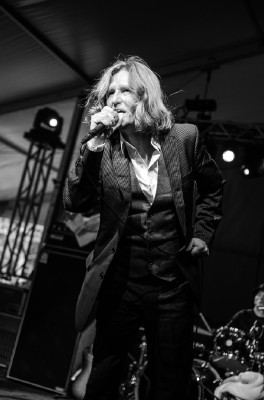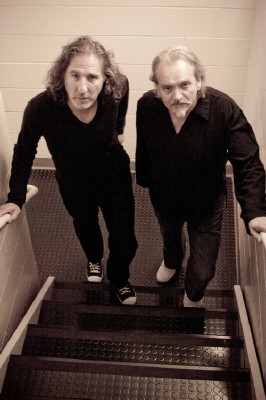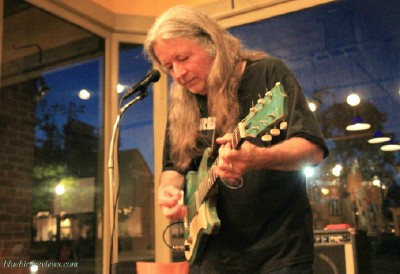Interviews

- Details
- Written by: Giovanni "Gio" Pilato
It's a gorgeous evening today at the majestic Hampton Court Palace, London, in occasion of the Uk date of the Seesaw Mini Tour, which Beth Hart and Joe Bonamassa are taking around Europe. Bluebird Reviews has been a great admirer of the L.A. artist for a very long time and we couldn't miss the chance to talk to her about Hart's career so far and the extraordinary success of the Seesaw album with Bonamassa.
After the sound-check is over, Beth Hart graciously accepted to see us in her dressing room, welcoming us with her usual warming smile and cordiality.

- Details
- Written by: Bluebird
"To catch the live performance, is like lightening in a bottle ... " ~John Waite.
I don't know how to catch lightening in a bottle, but I am sure going to try. I had the honor of interviewing John Waite for our website and have been thinking about his comments ever since.
John Waite. Yes, THE John Waite. The John Waite who started off his non-stop career as the lead of The Babys singing, "Every Time I Think Of You." A song that has been in our heads and hearts since it hit the top 20 in 1979. Even the backup singers are famous from this song, as readers on our website went toe to toe on liner note researches to figure out who they are. The fame of The Babys brought John into a different format, as he took a mid-section of the 80's and in walked, "Bad English."
Waite has great memories of these bands, and could have rode out his career on the hits, but went solo, only to record more great songs that spoke to the public. "Missing You" was not only a smash hit, but has been covered by Tina Turner, Alison Krauss and even current indie artists on tour, like New Orleans blues singer, Olga Munding. Waite appreciates the attention that other artists and fans bring to his music. However, there is something more that this talented man has yet to do, before the timeless rocker decides his career is complete.
Read more: HEAD FIRST with John Waite: The LIVE All Access Interview.

- Details
- Written by: Bluebird
Bluebirdreviews spoke to Jack Hues of WANG CHUNG, while they embarked on a
US Tour to launch their new album, Tazer UP!
LISTEN
to Jack Hues talk about many interesting topics in this phone interview, that was rich with music history, creative discussions of recording experiences, and an appreciation of bands and artists, both classic and contemporary.
Most of all, Wang Chung thanks their fans for sticking by them, all of these years.
Go out and see them on tour and pick up their new record, Tazer UP!

- Details
- Written by: Bluebird
Ray Mason has been writing songs and playing music both locally and nationally for decades. Supporting NRBQ, Marah, Marshall Crenshaw and other great artists, he is the strong foundation that maintains quality music in the Pioneer Valley and beyond. His band, The Lonesome Brothers, performs at the Iron Horse Music Hall regularly, but Ray can often be caught solo at local coffee shops and clubs. With always a smile, a story to share, and a vast catalog of original songs to play, if you see an announcement that Ray Mason will be playing in your area, take that quick turn to tuck into the venue and have a listen. Better yet, go out of your way to hear him play. Music history is not complete without an encounter with the mighty Silvertone.
- Details
- Written by: Led Zeppelin Ultimate Fan Page
Clinton Cunanan, lead vocalist, of ANOTHER LOST YEAR, corresponded with Bluebirdreviews on their new record, Better Days, and had some strong words about the future of music. Some of the answers here may surprise you!

